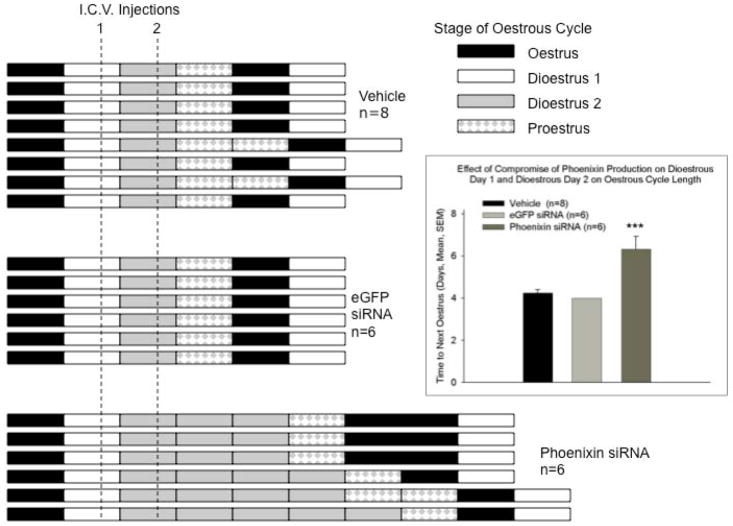Figure 4. Compromise of endogenous hypothalamic phoenixin delays the appearance of the subsequent oestrus in cycling female rats.
Following verification of a four-day oestrous cycle in rats bearing an indwelling cerebroventricular cannula, test substances [vehicle (2 ul sterile saline), or eGFP siRNA or phoenxin siRNA (2 ug in 2 ul sterile saline)] were administered i.c.v. on the afternoon of dioestrous day 1 and again on dioestrous day 2. Vaginal cytology was employed to monitor oestrous cycle progression and detect the next day of oestrus. (A) The bars indicate stage of the oestrous cycle for individual animals. Animals were then sacrificed on the first day of dioestrus following the verified appearance of oestrus and brains harvested for determination of phoenixin mRNA levels. The inset demonstrates the significant interruption of the four-day oestrous cycle in phoenixin siRNA treated animals, due mainly to the extension of the time in dioestrus. *** p < 0.001 versus vehicle and eGFP siRNA treated animals (ANOVA). In cycling female rats that were treated with siRNA directed against phoenixin on dioestrus days 1 and 2, and sacrificed the following day, hypothalamic content of phoenixin was significantly (p<0.01 vs. eGFP siRNA-injected controls, t test) reduced, as determined by radioimmunoassay (B). However, treatment with siRNA did not alter body weight (C).



